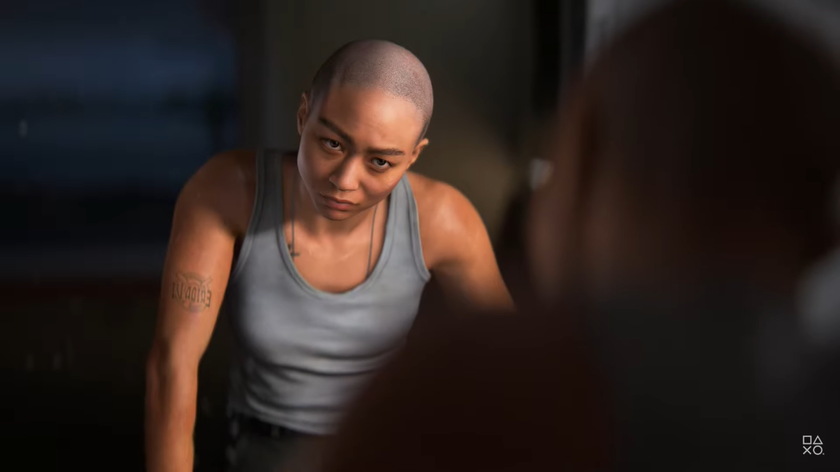Mass Effect: Andromeda can learn a lot from real-life space exploration (and FTL)
At the time of writing, NASA’s Voyager 1 space probe is 19,624,010,283 kilometres from Earth, or a little over 17 hours at the speed of light - a clump of ancient circuitry the size of a Ford Transit van, powered by the heat given off by 24 bulbs of plutonium, tumbling through darkness at a mind-boggling yet, in astronomical terms, snail-paced 17 kilometres a second. Launched way back in the 1970s, the probe recently became the first spacecraft to reach the outer limits of the heliosphere, the enormous bubble of charged particles emitted by our sun. It is, in other words, the first man-made artefact ever to pass out of our solar system into “true” interstellar space.
I couldn’t help but think of Voyager 1 as I watched the debut trailer for Mass Effect: Andromeda, which aired at EA’s E3 conference last month. The game posits a similarly historic departure, a trip to another galaxy in search of a new home for the Milky Way’s races following the devastating events of the original Mass Effect trilogy. The trailer is brilliantly staged and very thrilling, but it’s also curiously diffident, casual about the whole venturing-beyond-frontiers business. It begins with a placeholder main character waving through holograms of various alien worlds, as though browsing the Xbox One store with Kinect controls. Having picked out a destination - a Wild Western landscape that chimes nicely with the Johnny Cash trailer music - the character simply points to make the leap to the planet’s orbit. He doesn’t even need to wear a seatbelt.
For me this doesn’t quite sell the weighty premise of an intergalactic road trip (the Andromeda galaxy is about 2.5 million lightyears from Earth, though it’s also heading towards us at a gentle clip). Nor do the environments teased in the trailer. They look about as strange and otherworldly as the contents of the average Sonic the Hedgehog game. There’s a volcano level, complete with twisting firestorms, an ice level, a pleasant grassland that calls to mind Dragon Age: Inquisition’s endless Hinterlands region, and a sort of fungal grotto. The art direction is stunning throughout, as you’d expect, and the spectacle of the all-new Mako tearing down a hillside like an excited cheetah is cause for applause, assuming they’ve sorted out the original’s erratic jumpjet physics. But I don’t know - I was hoping for something a bit more outlandish, a feeling comparable to the awe and trepidation that kicks in when I think of Voyager 1 all the way out there, pushing back the boundaries of knowledge a kilometre at a time.

Perhaps you think I’m putting too much weight on BioWare’s shoulders. Developers of its stature already struggle to keep up with publisher profit expectations and changeable markets - asking those poor bastards to compete with NASA as part of the bargain is somewhat extreme. Fair enough, but consider at least that BioWare has the opportunity to tell a radically different kind of story in Mass Effect: Andromeda: a tale of harrowing risk and revelation, rather than the usual exercise in picking at the seams of a well-documented, exposition-drenched universe.
The original Mass Effect was a slight disappointment in that regard, simply because it took place after many of the key events in its version of the history of space exploration - after the discovery of the first Mass Effect relay, after first contact with the Turians, after humans first set foot on the Citadel. It gave us a mighty expanse of fiction to ponder, but not till the later stages of the campaign did it really let us forage off the beaten path. And even then, this was an escapade grounded in the comfortable sci-fantasy trope of a fallen precursor civilisation with a terrible secret.
It’s not just a question of the overarching themes, but the lived experience of the world. BioWare is in the business of outright and unambiguous power fantasies. It commonly casts you as the most important entity in the universe, in practice if not on paper, backed by an all-star crew of roughnecks and a fearful network of strategic resources. The studio has always managed to create challenge within these parameters, be it in the cut and thrust of battle or in the shape of political wrangles between side characters and factions. But it seldom manages to make you feel genuinely lost or afraid, like you’re at the mercy of people and events you haven’t a hope of comprehending. That final tussle with the Reapers in Mass Effect 3 is as near as BioWare has ever gotten to a sense of truly invigorating disempowerment, and even there you’re ultimately called upon to decide the fate of all sentient life.

There are, thankfully, now plenty of provocative examples of games in which you don’t play the part of cosmic fulcrum and arbiter. I’m talking about the surging subgenre of outer space roguelikes, in which procedural generation works to undermine the budding cosmonaut at every turn. FTL is the core text here, the seed from which many a wayward trip to distant stars has sprung, but the specimen I’ve played most of is Out There, a combat-free sim for PC, tablets and phone, in which you’re cast as a pilot returning Earthwards after one warp-jump too many.
Sign up to the 12DOVE Newsletter
Weekly digests, tales from the communities you love, and more
While there’s a strong element of strategy, the joy of the game is that it frequently confronts you with artefacts or episodes that defy explanation, asking you to make snap judgements on the basis of more or less nothing. Your ship doesn’t sport a handy universal translator, so you’ll need to puzzle your way through conversations with any aliens you meet. Random space phenomena - mysterious clouds, comet impacts, wormholes, ethereal starfaring organisms - also frequently threaten to bring your voyage to an ignoble end. And underlying all of that is the ticking, tormenting pressure of dwindling fuel and oxygen, which forces you to make hard choices about which systems you visit on the way home.

I wouldn’t want BioWare to adopt the roguelike approach wholesale - that would take too much power away from the developer’s immensely talented writers and designers - but I’d like Mass Effect: Andromeda to add a little more precariousness and suspense. I want more in the way of surprises, like those offbeat encounters that trigger as you tour the wasteland of Fallout. I want my ship to take damage and guzzle resources in a way that affects my voyage in more than a scripted fashion. Mass Effect 2 might have the finest opening and finale of any BioWare RPG simply because it dares to take things away from you - the game begins by ripping your vessel and crew apart, and ends by thrusting you into a mission that is all-but guaranteed to kill off at least one of your allies. I want that level of risk throughout.
I also want aliens and alien landscapes that feel alien, rather than this generation’s take on the Vulcans, Klingons, Zerg and Borg. It’s obviously hard to expound on what this entails - the whole point is that I’m as much in the dark as you are. But I want to feel the same sense of tremendous and abiding oddness you may have felt in the presence of, say, Bloodborne’s horrible Winter Lanterns, or any level in the splendidly surreal Biblical epic El Shaddai: Ascension of the Metatron.

It doesn’t seem likely that much of this will come to pass. The implications of the trailer aside, rumour has it that the new Mass Effect will follow on from the managerial ethic of Dragon Age: Inquisition, with a hefty outpost-building component and War Table-style away missions for AI characters. According to a so-called “leaked survey” from last year, there’s a new spin on the Protheans to look forward to, the “Remnant” - yet another long-vanished and misguided race, whose buildings and technology now litter the substrata of the galaxy’s habitable planets.
There is, to be clear, nothing inherently wrong with any of this - Inquisition is terrific, if conservatively designed. But Andromeda has the potential to be an evolutionary step-change, a move into uncharted waters for both developer and player. I’m in a different galaxy, for crying out loud - the raggedy representative of a beat-up cluster of civilisations come begging their neighbours for a place to rebuild. I want the unease and desperation of that to be palpable in the moment-to-moment of play. I don’t want to end up browsing planetary themes offhandedly, like a man flipping through a book of carpet samples. I don’t want to feel like I’m coming home.
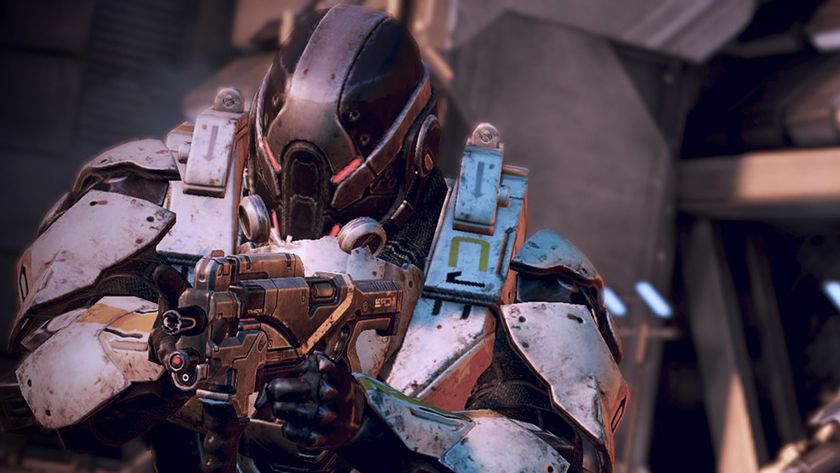

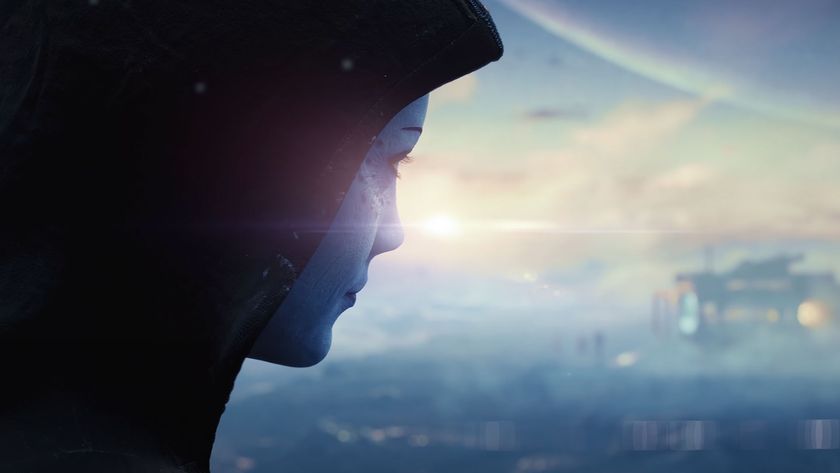
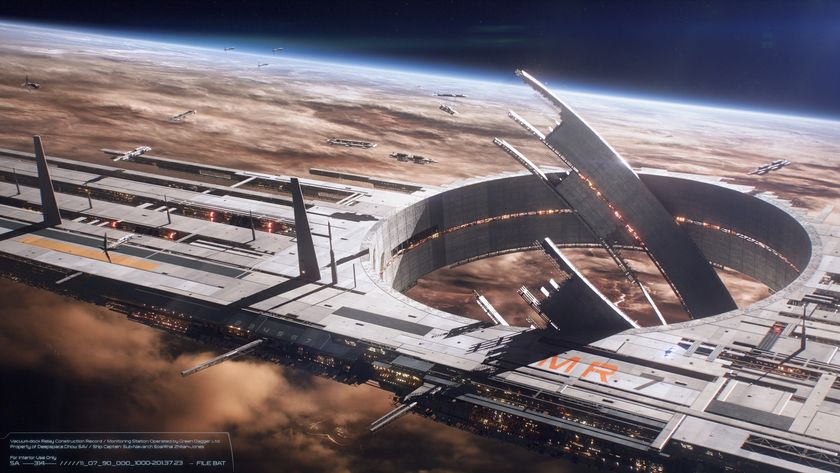
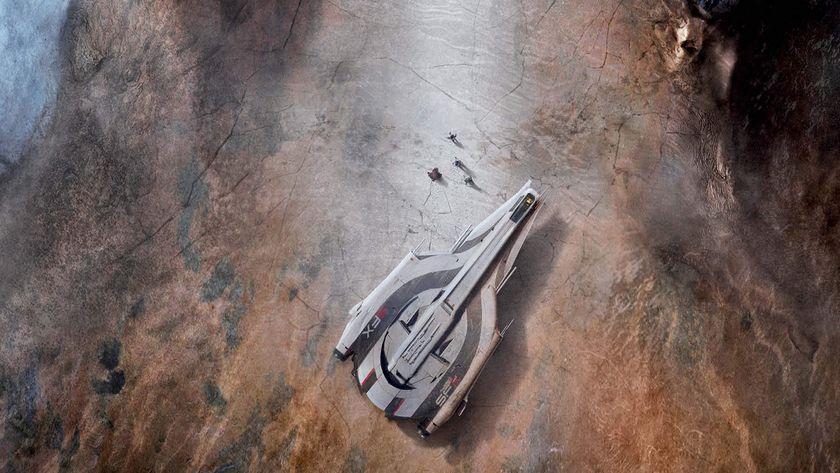








BioWare lead proves he's onto us while celebrating Mass Effect 3's birthday, clarifying that's all he's doing so that "nobody can say I purposefully teased them"

"EA gives you enough rope to hang yourself": BioWare co-founder says working for a big game company just ain't it, even if "it was actually a pretty successful run" for Mass Effect

